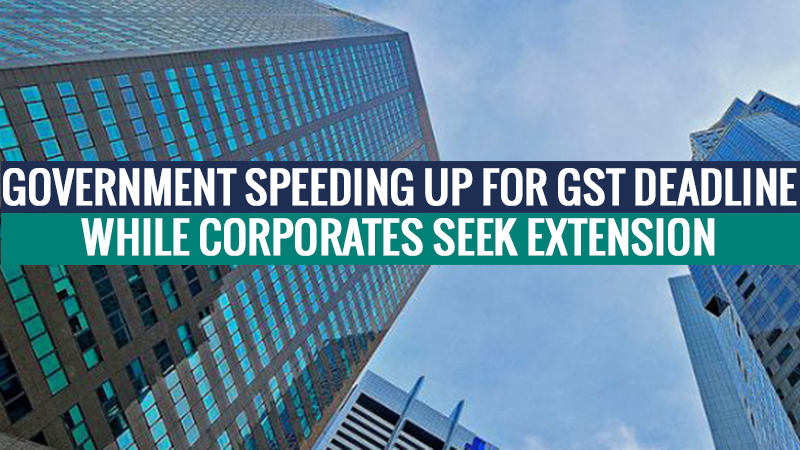
The corporates have expressed their views on the GST implementation and seek the deadline to be pushed to the 2nd quarter of next year. However, the govt will be trying its best to bring the law into action at earliest.
Mahesh Jaising, partner, BMR & Associates LLP said,”Industry bodies have been asking for more time. They want it to be delayed by a quarter or two. They would like to see the fine print and then prepare for the GST regime,”
Jaising said in many overseas markets, where GST has been introduced, corporates were given about a year to tune their system to the new tax regime.
However, Jaising’s colleague Rajeev Dimri, leader, indirect tax, BMR & Associates LLP, said there was “no case” for India Inc to be in “wait and watch” any more.
“There is no case any more for India Inc to remain in the wait and watch mode. It’s high time that businesses roll up their sleeves to work towards creating a GST compliant internal set up by the go-live date,” he said in a statement issued by BMR & Associates LLP.
The Council will make special recommendations on fixation of standard GST rate, model GST laws, principles that will be beneficial in the implementation of GST in the nation.
On Monday, the Cabinet also appointed the revenue secretary as the ex-officio secretary of the GST Council. The next possible meeting of the Council is scheduled to be held on September 22 and September 23.
During the press meeting just after the Cabinet meeting, Hashmukh Adhia, revenue secretary in the finance ministry said, “We are fully geared up for April 1, 2017, deadline for GST rollout.”
Prashant Deshpande, partner, Deloitte Haskins & Sells LLP, said the “immediate agenda” of the Council would be to finalise the GST rate and exemptions; “without a fix on which the stakeholder consensus would be difficult to achieve.”
Pratik Jain, leader – indirect tax, PwC India, also said implementation of GST from April 1, next fiscal would be contingent upon the speed at which the Council is able to build a consensus on issues such as rates, exemptions, dual control etc.
BMR & Associates LLP’s Dimri said with the enforcement of Section 12 of the Constitution (One Hundred and First Amendment) Act, 2016, the two months’ clock for setting up of the GST Council has started ticking.
Read Also: GST Impact on Common Man
“As soon as the Council gets formed it will have a platter full of important and critically time-driven deliverables. The most important of them being reaching consensus amongst all states regarding several aspects of levy and administration of GST in India viz. tax rates, list of goods to be exempt / taxable on merit rates of GST, determining the threshold for taxable turnover for goods and services, and so on,” he said.